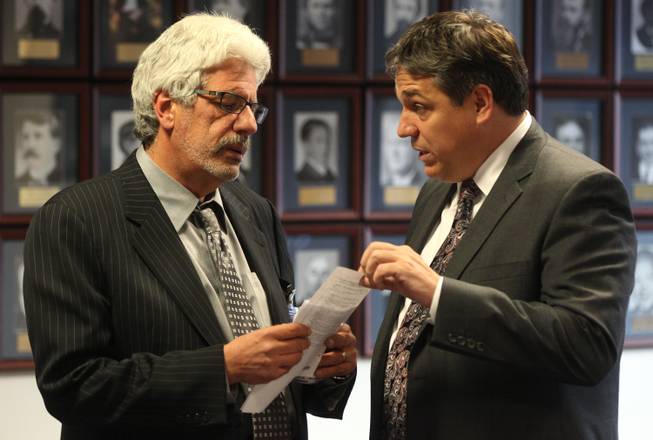
AP Photo/Cathleen Allison
Lobbyist Billy Vassiliadis, left, talks with Nevada Assemblyman Marcus Conklin, D-Las Vegas, on June 6, 2011, at the Legislature in Carson City.
Sunday, June 12, 2011 | 2 a.m.
Sun coverage
Sun archives
- NV Energy-backed measure gets approval in final minutes (6-7-2011)
- With HOA collection bill dead, language revived in another bill (6-6-2011)
- Bill would cap collection fees when HOA bills are past due (4-15-2011)
- Senator wrote HOA bills while working for HOA (4-3-2011)
- 2 NV bills would set caps on HOA collection fees (3-24-2011)
- Ties to influential business interests power Sandoval’s political career (5-9-2010)
Any lobbyist will tell you it’s much easier to kill a bill than to get one through the Nevada Legislature.
But there is a golden hour at the end of every legislative session that is the exception, particularly for industries and individuals with the right connections to a small circle of connected lobbyists.
The end of every session is a frantic rush to close the 120-day process, when lawmakers, lobbyists and reporters have their attention diverted in a thousand directions. And as a result, with the right legislator on your side, the right lobbyist can bypass the political fights, public hearings and debates and slip through legislation, almost unnoticed.
To wit: Five minutes after midnight Tuesday — a mere 55 minutes before the constitutionally mandated close of the 2011 legislative session — lawmakers introduced a policy that could cost NV Energy ratepayers $1 billion.
•••
State Sen. Michael Schneider, a mustachioed business-friendly Democrat from Las Vegas, called his committee on Commerce, Labor and Energy to order at the back of the Senate floor. He held a 25-page amendment containing pieces of a major energy policy initiative that had failed to make it through the Legislature.
Reporters and lobbyists strained to hear as Schneider and his staff quietly explained the general outlines of the bill. NV Energy, one of the most powerful private interests operating at the Legislature, was pushing it as its top priority.
The original bill set renewable energy incentive standards, and had been hammered out in public meetings over the course of months. But the amendments did other things, including placing ratepayers on the hook for $1 billion in transmission lines, consumer protection advocates would later say.
The major component of that amendment, which dealt with power transmission lines, was written by NV Energy and its lobbyists, Schneider would later confirm.
Other parts of the bill, which made solar contracts with NV Energy confidential and allowed geothermal projects to more easily obtain tax breaks — provisions which never received a hearing — were written by other prominent lobbyists on behalf of their clients, and tacked onto the bill.
But that wasn’t mentioned in the rushed committee meeting.
Instead, Schneider announced, “We got a new bill.”
“Are we going to have a hearing?” Sen. James Settelmeyer, R-Minden, asked sarcastically, glancing at the clock.
“This is a terrible way to make policy,” Sen. Michael Roberson, R-Las Vegas, said.
“No, it’s a great way to make policy,” Schneider replied.
With no testimony — other than a couple of shouted answers from an NV Energy lobbyist standing in the gallery — and no reading of the language in the bill, Schneider’s committee adopted his amendment in a party-line vote.
“That’s going to cost you a bottle of wine,” Schneider joked with an NV Energy lobbyist.
Within minutes, the new bill was on the Senate floor, where Majority Leader Steven Horsford, D-North Las Vegas, declared it an emergency measure, freeing it from the rules adopted by the Legislature at the beginning of session to establish a fair and public process for passing new laws.
Horsford’s move allowed the Senate to take an immediate vote to adopt the amendment and send it to the Assembly, which it did.
“I didn’t even know what was in it until I read the paper the next day,” said Sen. Sheila Leslie, D-Reno, who grudgingly voted for it.
•••
In an ideal world, this scenario would be an anomaly, a once-in-a-generation attempt to bypass the public process.
Not at the Nevada Legislature. “This is highly usual, unfortunately,” said one veteran lobbyist.
It’s a process almost exclusively reserved for the state’s most powerful law and lobbying firms — R&R Partners, lobbyist Greg Ferraro, Jones Vargas — that also happen to be instrumental in getting key figures, from lawmakers to the governor, elected.
Assembly Minority Leader Pete Goicoechea said of the last-minute process: “We have to take a long, hard look at how we’re doing this process.
“It’s a wonder we haven’t got more issues than just this one bill,” he said.
In fact, a number of major bills were born in the final hours of the session. Many slid through, just as NV Energy’s did.
R&R Partners lobbied heavily for a bill that critics fear would make it easier to develop projects at Lake Tahoe.
Others had a momentary flicker of life before lawmakers caught on and killed them — a bill by Gov. Brian Sandoval, for example, that would have given more audit power to his inspector general and another by Assembly Democrats that would have put their tax plan before voters.
A bill favored by collection agencies and homeowner management companies, which would give them a leg up in a legal battle with investors over late HOA fees on foreclosed homes, was stripped out of its original bill and tacked onto two other bills, before it was killed on the Senate floor.
Most lawmakers react to the last-minute crush with a degree of resignation. It’s just how things are done. They even depend on that crush to revive their failed bills.
But that doesn’t mean they believe it creates good policy, free of unintended consequences.
“I’m German, so I usually like sausage, but I’m not sure how this is going to end up tasting,” said Sen. Ben Kieckhefer, R-Reno, acknowledging he voted on some measures that likely lacked proper vetting.
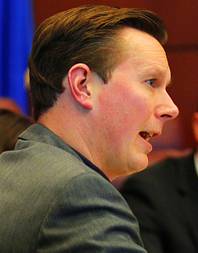
Ben Kieckhefer
Others with ideas about creating good policy through the process, even some veteran lobbyists, say the process is broken.
“For five or six months they argued about raising $600 million in taxes for schools,” said Timothy Hay, a former state consumer advocate for the attorney general.
The energy bill, he said, “potentially opens the door to $1 billion of exposure for ratepayers, which are basically the same as taxpayers, without hardly a public discussion.”
The NV Energy bill, which passed, has two other controversial provisions. One keeps power purchase agreements with the utility confidential, which consumer groups say makes it harder to control costs.
Another takes away county commissions’ control of tax abatements for geothermal projects — reversing policy passed by the 2009 Legislature.
Neither provision was part of any bill until both were brought up in the final minutes of the session, according to opponents.
Sandoval Chief of Staff Heidi Gansert was called to the floor after some Senate Republicans expressed concerns about portions of the bill to allow geothermal companies to get tax abatements without county approval.
Gansert said she was not there to support or oppose the measure. She was providing information about the amendment regarding transmission lines and geothermal, she said.
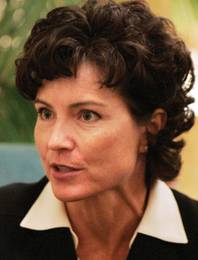
Heidi Gansert
“I was not advocating for the amendment. I was explaining the amendment,” she said. “The governor has not decided yet whether he will sign the bill.”
Pete Ernaut, a partner at R&R Partners, said the transmission portion of the bill was discussed publicly when it was part of Senate Bill 488. (He and Ferraro persuaded their longtime friend Sandoval to leave the federal bench and run for governor.)
He acknowledged ratepayers would face some risk from the measure, but also said that was necessary for the proposal to create a public benefit — the possibility of Nevada exporting renewable energy.
“If people want Nevada ratepayers to benefit, then the utility has to be involved, and the utility has to shoulder some of the risk,” he said. “The only way for ratepayers to benefit is if a transmission line is built through NV Energy.”
NV Energy lobbyists had gotten the transmission language passed through the Senate, but then met resistance in the Assembly.
Assemblywoman Marilyn Kirkpatrick, D-North Las Vegas, stalled the legislation. She had a competing proposal to create a publicly financed transmission authority.
NV Energy lobbyists had been leaning on Kirkpatrick but she said she had run out of time. (Kirkpatrick did not return calls for this story.)
“We didn’t realize the transmission bill in the Assembly wouldn’t get out until 11 o’clock at night,” Ernaut said. “We had to amend the Senate bill, and had it passed.”
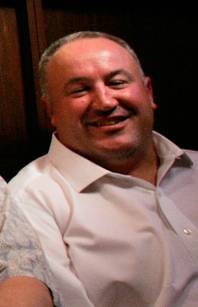
Pete Ernaut
He said the language on transmission lines “had been around for months. It wasn’t new language to anyone paying attention.
“It’s a very complex issue. It would’ve been beneficial for everybody if there were more hearings and debate on that issue. But that’s not in our control,” he said. “I’m hired to represent my clients. We’re fortunate to have 20-plus years of experience in this process, and understand all the legitimate rules available.
“You don’t survive 20 years in this business by doing shady deals or exploiting your relationships.”
•••
Last-minute maneuvering can free lawmakers of accountability. Take a measure allowing the Reno City Council to impose a special fee to help finance remodeling of the National Bowling Stadium.
On the last day of session, Ferraro, the lobbyist, arrived in the building with executives from downtown Reno’s biggest casinos to persuade lawmakers to pass the enabling legislation for the new fee.
The language was drawn up. A so-called conference committee — where six lawmakers gather to decide what a final bill will look like when the Senate and Assembly disagree on an amendment — met and tacked the language on to a bill dealing with taxpayer-financed projects.
When the final bill made it to the Senate and Assembly floors, it took a voice vote to adopt. There is no record of that final vote. (It was the same case in the Assembly on the energy bill.)
Some of the last-minute dealings are the fault of the hostage-taking nature of the entire process. Lawmakers and lobbyists can be a back-stabbing bunch. In the mire of personality conflicts, party divisions and Senate vs. Assembly breakdowns, it’s difficult to keep track of who is loyal to whom.
To deal in this atmosphere, each party and each chamber keep a list of hostage bills. One house, or one party, must give on one bill, before the opposition releases one of its hostages. The balance can easily break down.
“A lot of it gets wrapped up in the personality politics and the inter-cameral nonsense,” said veteran lobbyist Billy Vassiliadis, the head of R&R Partners. “So and so will say ‘I’m not passing so and so’s bill,’ or ‘That’s a Senate bill, I’m not passing that.’ You have all that bravado and when you’ve got time to screw around, you screw around.
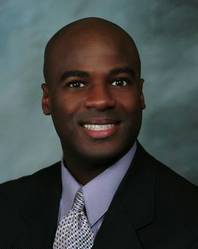
Kelvin Atkinson
“When you get to the last 25 hours, then half the place is being held hostage and they all realize they’re all holding each other hostage.”
•••
Assemblyman Kelvin Atkinson, D-North Las Vegas, was the primary sponsor of AB416, the bill that would become the transmission bill. He was initially angry that the Senate would amend its failed energy bills into the one he had worked throughout the session. “It’s a huge amount of money for them,” he said of NV Energy.
But he wasn’t successful in getting his bill passed, and NV Energy and its lobbyists were.
Later that night, after the session ended, he said he supported the bill after all. Any rate increase tied to the measure “shouldn’t be a significant one.”
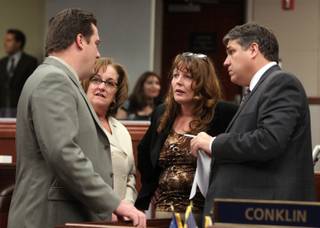
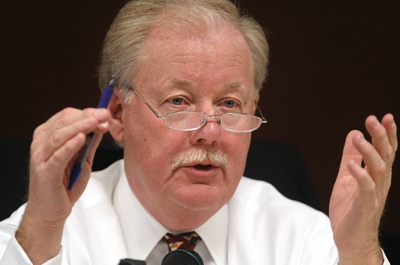
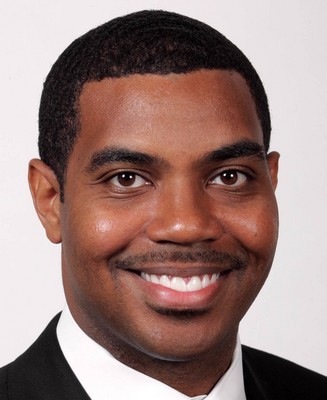

Join the Discussion:
Check this out for a full explanation of our conversion to the LiveFyre commenting system and instructions on how to sign up for an account.
Full comments policy